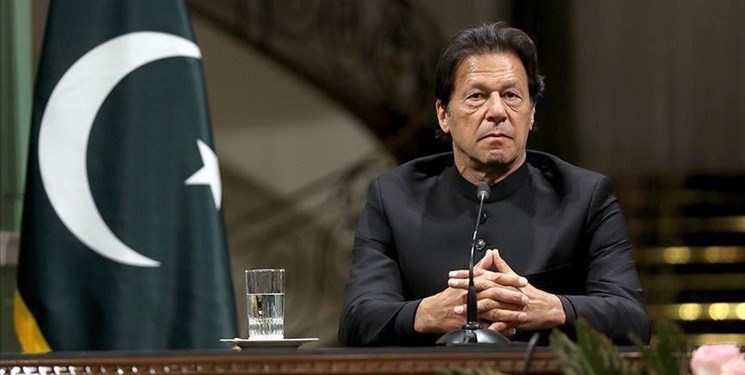Disagreements that remain unshaken.
Pakistan-Taliban relations beyond transient satisfaction.
Contrary to hopes and expectations in Pakistan, it is unlikely that the re-establishment of the Pashtun-dominated Islamic Emirate in Afghanistan will open a golden chapter in Islamabad-Kabul relations as a whole. The chronic Pakistan-Afghanistan territorial dispute, Afghanistan’s special relationship with India, and Pakistan’s ambitious idea of establishing itself as the sole channel of foreign trade, as well as Central Asian energy exports, are important factors in Pakistan’s Afghan policy design. Alleged and Pashtun in Kabul justified.
The rapid mobilization of the Taliban movement, which led to the complete overthrow of Ashraf Ghani’s government, on the surface indicates the glorious success of Pakistan’s long-standing efforts to consolidate its preferred government in Afghanistan. Islamabad has been pursuing this ultimate strategic goal for more than 25 years since the establishment of the Taliban movement and deserves admiration for its long-term design and implementation. Faced with growing global concern over the fate of Afghanistan and Afghans under Pakistani rule, Pakistani leaders have sought to stay on the sidelines and generally speak of the need for an inclusive, inclusive government in Kabul. They bring. Recent dramatic developments in Afghanistan have also given credibility to the idea of Pakistan emerging as the first beneficiary of recent developments, and to Pakistan’s overly optimistic assurances of guaranteed close engagement with Afghanistan, which is dominated by the group. It is considered a proxy of Pakistan.
The successful phase of overthrowing the Kabul government in favor of a new era of Taliban rule will undoubtedly be accompanied by serious challenges facing Islamabad in the long run. Pakistan’s influence over the Taliban movement, on the one hand, and Islamabad’s ostensible cooperation with the US and allied military movements in Afghanistan, on the other, earned it a degree of respect and credibility. This persuaded the major players in Afghanistan to continue the policy of tolerance and engagement with Pakistan, despite the glorification and hidden grievances about the nature and essence of Pakistan’s two-pronged policy towards Afghanistan. As the issue of Afghanistan fades in the context of international engagement with Pakistan, global attention to Islamabad will inevitably decline. These actors will now have more leeway to shift the weight of their balanced regional approach to New Delhi, given the lesser compulsion they face. Given Pakistan’s shaky economy and the vitality of continued foreign investment, loans and grants from largely Western countries, as well as Western-influenced financial institutions, Islamabad will inevitably have to rely on fewer and fewer economic and trade partners. Will be generous.
The Taliban’s foreign relations apparatus has also steadily improved its capabilities and scope since the fall of the first Islamic Emirate in 2001. This group is no longer under the decisive command of a charismatic leader, and instead, a collective leadership framework consisting of influential figures with a broader understanding of world affairs and the challenges facing foreign relations or the prerequisites for engaging with the international community is responsible for organizing. Accurate and advance the group’s foreign policy goals. The Taliban have diversified their international contacts and now face fewer restrictions on requiring an exclusive reliance on Pakistani diplomatic support, which translates into a reduction in Islamabad’s influence and dominance over the group in general. Afghanistan under the Taliban cannot expect to benefit fully from the financial and development assistance that has helped the modernization and rehabilitation of the country’s infrastructure over the past two decades. The emerging events paint a bleak picture of the deteriorating national economy, declining living standards and welfare, and the expected influx of Afghan refugees into neighboring countries, including Pakistan, with major social and economic consequences for Islamabad. Also, in order to help the Islamic Emirate during the unpredictable transition period and until the available alternative financial resources are needed to run the country on a day-to-day basis, Pakistan will have to participate in providing some of these resources despite the financial problems ahead. It will be your own.
Contrary to hopes and expectations in Pakistan, it is unlikely that the re-establishment of the Pashtun-dominated Islamic Emirate in Afghanistan will open a golden chapter in Islamabad-Kabul relations as a whole. The chronic Pakistan-Afghanistan territorial dispute, Afghanistan’s special relationship with India, and Pakistan’s ambitious idea of establishing itself as the sole channel of foreign trade, as well as Central Asian energy exports, are important factors in Pakistan’s Afghan policy design. And they have justified the Pashtuns in Kabul. At the same time, the long-standing paradox that the existence of a Pashtun favored by Pakistan to occupy Kabul is the same claimant in the territorial dispute case remains unresolved. Since the establishment of Pakistan, no Afghan government, including the Taliban, has expressed the slightest desire to recognize the Durand Line as the official and agreed international border between Afghanistan and Pakistan. Given the increasing population of Pashtuns in Pakistan over the number of Pashtuns living in Afghanistan, as well as the inviolable ethnic ties between Pashtuns on both sides of the border, the presence of a Pashtun regime in Kabul could create opportunities for separatist tendencies in Pashtun areas of Pakistan.









